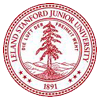Workshop on "The Mobilization of Identities"
Stanford University, February 15. 2.45-5pm.Cubberley Library, School of Education (Room 202-205)
This workshop provides scholars the opportunity to present, critique, and discuss theoretical, methodological, and empirical ideas and issues related to academic research on social movements, the web, and food and the environment.
Featured speakers:
Click here to Register!
Francesca Forno, University of Bergamo: "How political consumerism enacts collective action: Two cases of anti-mafia mobilization based on network exchanges"
Abstract: In mid 1990s, through the first decade of the twenty-first century, market-based actions have started to be increasingly utilized by several social movement organizations as a way to promote social change. The capacity to enact citizens' participation demonstrated either by boycotts campaigns launched against some big corporations--such as the ones promoted against Shell, Nike, Nestle etc.-- or by the several 'fair trade' initiatives, has lead some commentators to argue that the act of consumption has become increasingly suffused with citizenship characteristics and considerations (Scammell 2000). In Italy political consumerism has also been incorporated among the tactics of the anti-mafia movement, with some interesting outcomes. During the presentation, I will discuss two cases of anti-mafia mobilization based on political consumerism. The first case regards an initiative promoted by an organization, called Addiopizzo, which succeeded to mobilise local shopkeepers against the mafia by calling consumers to use their purchasing power to support those business-owners who refuse to pay protection money. The second case pertains some actors--such as the cooperatives that grows corn, wheat, grapes and other agriculture products on land confiscated from mafia bosses--who by promoting direct-to-customer sales (short supply chain) have fostered the condition for the creation and expansion of an alternative market to the one controlled by the mafia. As I will argue, although both experiences are still very embryonic, they nevertheless seem to suggest that the introduction of market-based actions and in particular the use of 'buycotts', i.e. the deliberate purchase of a company's products in support of their policies--in the fight against the mafia has helped to overcome the so-called 'collective action problem' by providing symbolic as well as material incentives for participation.Philip Howard, University of Washington: "Technology and Social Movements Cascades: Lessons From Tunisia, Egypt and Jordan"
Abstract: Digital media has upset traditional patterns of political communication in many countries, and upset traditional approaches to understanding contemporary democratization. In some countries there have been very rapid democratic transitions, with dictators caught off guard by the creative use of new media tools by tech-savvy activists. In some emerging democracies, political deliberation and electoral competition has deepened because digital media has helped journalists, political parties, and civil society actors entrench democratic practices. Many authoritarian regimes, which have experienced neither democratic transition nor democratic entrenchment, have had trouble maintaining their authority in the contemporary media environment. Acts of civil disobedience last longer, have broader impact, and are smartly organized through digital tools. Documents leak out of government agencies, and independent citizen journalists do their own investigative work into corruption. What can we learn from the technology enabled, cascading social movements, that have shaken North Africa and the Gulf over the last two months? How can we build a meaningful theory of contemporary democratization using both the clear and partial examples of how technology diffusion supports democratic practices? Can such a theory be meaningful in light of some of the obvious counter examples of authoritarian regimes that seem as strong as ever?Paolo Parigi, Stanford University: "Transition U.S.: New Tactics, New Technologies"
Abstract: New grassroots organizations that target ethical consumer choices and behavior represent a departure from institutionalized social movement organizations. These new organizations are not primarily concerned with persuading the state to change policies but with engaging individuals to adopt new lifestyles. Such lifestyle changes create new identities that diffuse from the market to the broader society. The internet is used for coordinating individual changes into collective action and for recruitment. We used an online survey (N=243) to collect data on the users of the Transition U.S. social website on Ning.com. Over 50% of respondents have experiences with political activism. However, their responses indicate that they are dissatisfied with traditional means of political participation (e.g. rallies) and prefer non-contentious collective actions (e.g. local gardening). Respondents perceive community organizing to be the most effective way to bring about social change, deprioritizing connections to local government. They generally distrust business corporations and political parties, and explain their withdrawal from political/civic organizations as the result of the failure of institutional organizations and means to effect change. Respondents are generally web-savvy, and those who join the movement are more likely to have first heard about the movement from the internet and other weak ties than those who initiate local chapters. Indeed, joiners tend to stay informed about Transition via the web while initiators tend to stay informed via local meetings. These findings have implications for tactical shifts in the use of the web for organization and mobilization efforts by similar lifestyle movement organizations.Colin Sage, University of Cork: "Transitions, transgressions, transformations: Mobilizing around food"
Abstract: At a time of heightened economic uncertainty and when the World Bank is commissioning exercises designed to model scenarios of catastrophic collapse (Kousky et al 2009) we begin to enter the interesting territory of "End Times" thinking. This might help to explain the emergence of food as forming the basis of a new social movement (Starr 2010, Nestle 2009). Strategies of "growing for survival" are a long way from the eco-gastronomic Slow Food organisation, which might be regarded in some quarters as part of this NSM given its "heroic" role in opposing the "Americanization" of food (Ritzer 2005). This paper will argue that more stringent measures are needed to explore mobilizations around food, with local level food-growing initiatives emerging as "submerged" but inter-connected networks providing a useful starting point. The emergence of this kind of "local food" has to a significant extent been driven by growing appreciation of the twin challenges of energy security and climate change, and partly by an evolving aesthetic in relation to consumption. The particular challenge of the global carbon problem, its "yin and yang" (Bridge 2010), comprising the assumed impending scarcity of liquid fossil fuels with the prospect of a permanent shortfall in energy availability, and the abundance of greenhouse gas emissions arising from the combustion of carbon, has led many to consider local food provisioning as a (potentially urgent) necessity. In this regard, the Transition Town network has emerged with the most articulate and coherent "cosmology", in which local food growing activities form the centrepiece of a strategy to achieve a greater preparedness for uncertain futures. However, "End Times" thinking gives rise to some interesting collaborations that transgress the assumed constitution of networks. The paper will conclude with some observations on how the US Department of Defence is contributing to helping TT think about resilience and preparedness.




